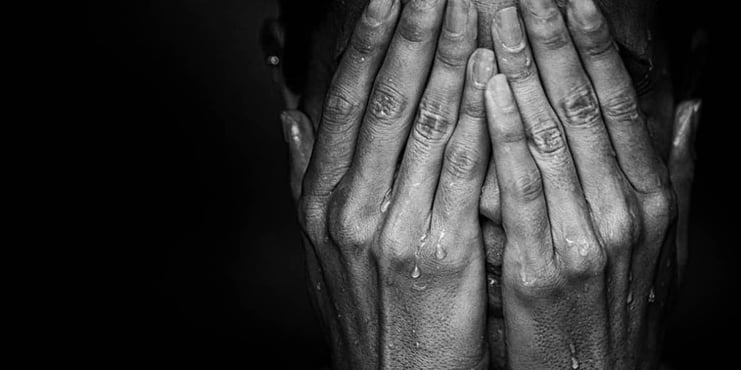
There is no easy way to write about death that doesn't risk trivializing it or being overwhelmed by it. Fortunately, I have never suffered a tragedy, such as the loss of a child or spouse or family member before their natural time.
You don't have to lose someone or face your own death to learn from it.
I have spent a lot of time personally and professionally with people who have had to grapple with the questions that none of us have answers:
-
Why did this happen?
-
Why me?
-
What did I do wrong?
-
How can I make this pain go away?
-
If I could only have...
With all the pain of loss and grief, I do like one aspect of what death does to those left behind: it pushes out all the extraneous noise of our lives and forces us to deal with only that which really matters. Most often, someone who has been shattered by a loss is very, very real. It's almost like you're speaking to someone on a drug when what comes out is pure, true, and undefended.
I find such experience deeply grounding, and I enjoy being in an atmosphere of such truth. It is at such times that I understand what might draw someone to work in hospice care. The opportunity to work in an environment where everything is on the line, where there is no point in pretense, where life is stripped down to the bare essentials: it seems to me it's like a spiritual backpack trip. You have only what you really need to survive; everything else is extra baggage you don't want to carry. You are reminded of how little you really need, and how simple and pure life can be.
Sometimes when I'm working with a couple, and they're sniping at each other over the "he said/she said" of married life, I cut through the static with the following intervention:
-
I have them sit across from each other and fill in the blank to the sentence - "If I knew I was going to die tomorrow, what I would want you to know today is..."
-
That gets their attention. They immediately drop out of the argument and say things like "I love you" or "I'm sorry I wasn't a better husband/wife."
Why does this happen?
I think most of the time, most of the day, our ego is running the show. We are concerned first and foremost with the survival of the "I" of the ego. This can take countless forms, but just a few examples to help you know what I mean would include:
-
Worrying about what I get out of this situation
-
How I look to others or wanting to hurt someone who hurt me
-
Feeling slighted by perceived disrespect
-
Wanting to fend off possible criticism
-
Feeling embarrassed by something I've done
-
Needing to be right
All of the above actions are about the importance of Ego.
We don't know what happens when we die.
Although most of us have beliefs about it. Here's one of the things I feel relatively sure about: the ego dies with the body.
If any part of us survives our physical death, I cannot believe it is that aspect of us which worries how we look, if only because I see how that drops away in those who have just lost someone.
Letting death be our teacher, through making us aware of what truly matters, is one of the best ways I know to be truly alive.
If you knew you were dying tomorrow, what would you do differently today?
If you're struggling with loss, grief, and death, we're here to help with Imago Relationship Therapy and Relationship Workshops. We also have Online Couples Therapy and Online Couples Workshops right now!
Discover more about Imago with our Imago Professional Membership, Imago Professional Facilitators, Imago Professional Training, and Imago Educational Webinars.
 This blog post was written by Josh Gressel, a clinical psychologist and certified Imago therapist in practice in the San Francisco Bay Area.
This blog post was written by Josh Gressel, a clinical psychologist and certified Imago therapist in practice in the San Francisco Bay Area.
He is the author of Embracing Envy: Finding the Spiritual Treasure in our Most Shameful Emotion (University of America Press, 2014) and "Disposable Diapers, Envy, and the Kibbutz: What Happens to an Emotion Based on Difference in a Society Based on Equality?" in Envy at Work and in Organizations (Oxford University Press, 2017). He has just completed a book on masculinity.
Check out Josh's website: joshgressel.com




